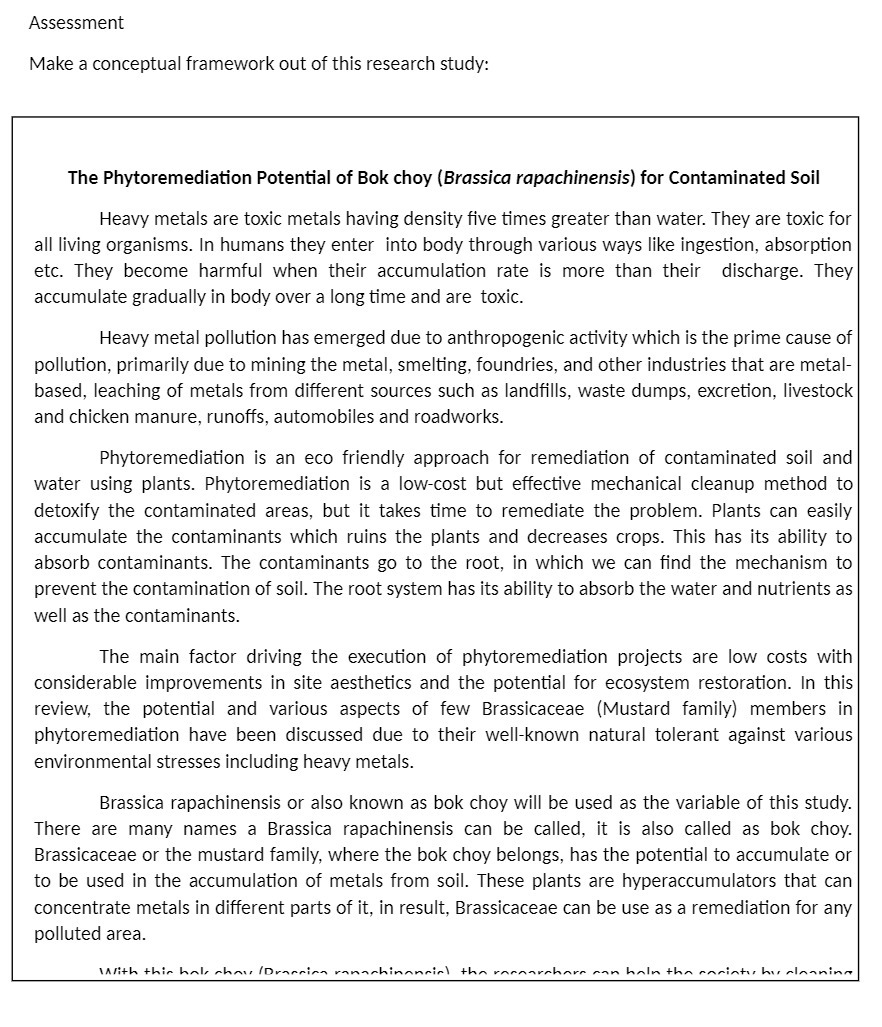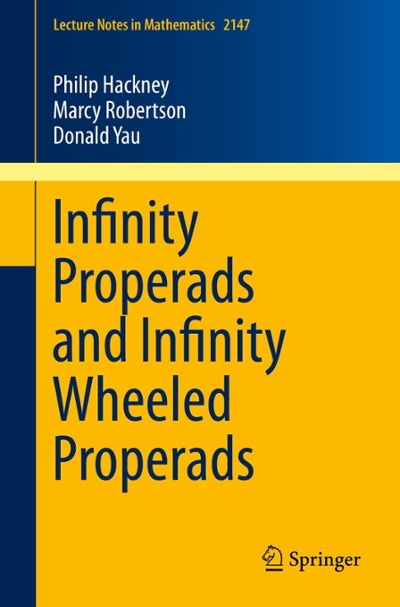Assessment Make a conceptual framework out of this research study: The Phytoremediation Potential of Bok choy (Brassica rapachinensis} for Contaminated Soil Heavy metals are toxic metals having density ve times greater than water. They are toxic for all living organisms. In humans they enter into body through various ways like ingestion, absorption etc. They become harmful when their accumulation rate is more than their discharge. They accumulate gradually in body over a long time and are toxic. Heavy metal pollution has emerged due to anthropogenic activity which is the prime cause of pollution, primarily due to mining the metal, smelting, foundries, and other industries that are metal based, leaching of metals from different sources such as landlls, waste dumps, excretion, livestock and chicken manure, runoffs, automobiles and roadworks. Phytoremediation is an eco friendly approach for remediation of contaminated soil and water using plants. Phytoremediation is a lowcost but effective mechanical cleanup method to detoxify the contaminated areas, but it takes time to remediate the problem. Plants can easily accumulate the contaminants which ruins the plants and decreases crops. This has its ability to absorb contaminants. The contaminants go to the root, in which we can nd the mechanism to prevent the contamination of soil. The root system has its ability to absorb the water and nutrients as well as the contaminants. The main factor driving the execution of phytoremediation projects are low costs with considerable improvements in site aesthetics and the potential for ecosystem restoration. In this review, the potential and various aspects of few Brassicaceae {Mustard family} members in phytoremediation have been discussed due to their wellknown natural tolerant against various environmental stresses including heavy metals. Brassica rapachinensis or also known as bok choy will be used as the variable of this study. There are many names a Brassica rapachinensis can be called, it is also called as bok choy. Brassicaceae or the mustard family, where the bok choy belongs, has the potential to accumulate or to be used in the accumulation of metals from soil. These plants are hyperaccumulators that can concentrate metals in different parts of it, in result, Brassicaceae can be use as a remediation for any polluted area. urn-In +I..'..-. MAI.- .nlnn... IquH-trq ram-camhnntp'. Hmn rnnnpnI-'nn- an... Innln I-l-I'n pariah. L\": Fla-tut..."







